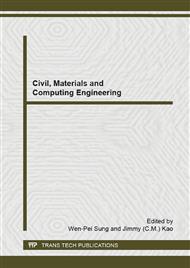p.1183
p.1189
p.1194
p.1199
p.1203
p.1208
p.1211
p.1216
p.1220
Study on Income Heterogeneous Expectations and Commercial Housing Price Fluctuations – Analysis Based on Regions of the East and the West in China
Abstract:
The purpose of this paper is to analysis the effects of residents income, income heterogeneous expectations, housing price changes expectations on housing price fluctuations. The paper firstly adopts adaptive expectation method to quantify income heterogeneous expectations, based on the 2003-2012 relevant data of 23 provinces and autonomous regions of the East and the West, constructs the spatital model, and compares with the rational expectation method. Income of residents, income heterogeneous expectations and housing price changes expectations are set as explanatory variables, commodity housing price as dependent variable. The conclusion is drawn that that the increasing of income, income heterogeneous expectations and housing price changes expectations promotes commodity housing price, and the significance of adaptive expectation method in the research of expectation and housing price fluctuations is indicated.
Info:
Periodical:
Pages:
1203-1207
Citation:
Online since:
December 2014
Authors:
Price:
Сopyright:
© 2015 Trans Tech Publications Ltd. All Rights Reserved
Share:
Citation:


